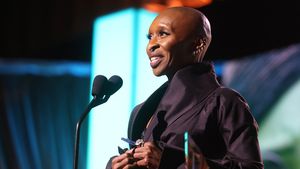Few unmarried
HIV-positive parents have made legal arrangements for who
would care for their children if they die, the RAND
Corporation reported Monday.
The nonprofit
think tank analyzed 222 unmarried HIV-positive parents and
found that:
-12% had not
identified a legal guardian for their children;
-6% had
identified a guardian but hadn't discussed their
preference with the guardian;
-53% said the
guardian had agreed to be the guardian;
-only 28% had
prepared legal documentation of their guardianship choice.
Previous studies
have found that children who lose a parent to HIV/AIDS
suffer higher rates of depression, exhibit risky sexual
behaviors, and have other emotional and behavioral
problems. Parents who have a will or standby
guardianship in place can help ease the trauma their
children would suffer, reduce the chances that
children would be separated from their siblings, or
spend long periods of time in foster care.
"I think
parents often assume that if anything happens to them, then
grandma, an uncle, or a close friend who spends a lot of
time with their children will become the guardian, but
the legal system doesn't always function the
way parents assume it will," Mark A. Schuster, senior
author of the study and director of health promotion
and disease prevention at RAND, said in a statement.
"All
parents--not just parents with HIV or other, chronic
illnesses--should consider a guardianship
plan," said Burton Cowgill in a release. Cowgill
is a researcher at the UCLA/RAND Center for Adolescent
Health Promotion and a Ph.D candidate in the
Department of Health Services in the School of Public
Health at UCLA. "By identifying who you want to be
the guardian, you reduce the possibility of your
children ending up with someone you don't want
them to be with." (The Advocate)

















































































